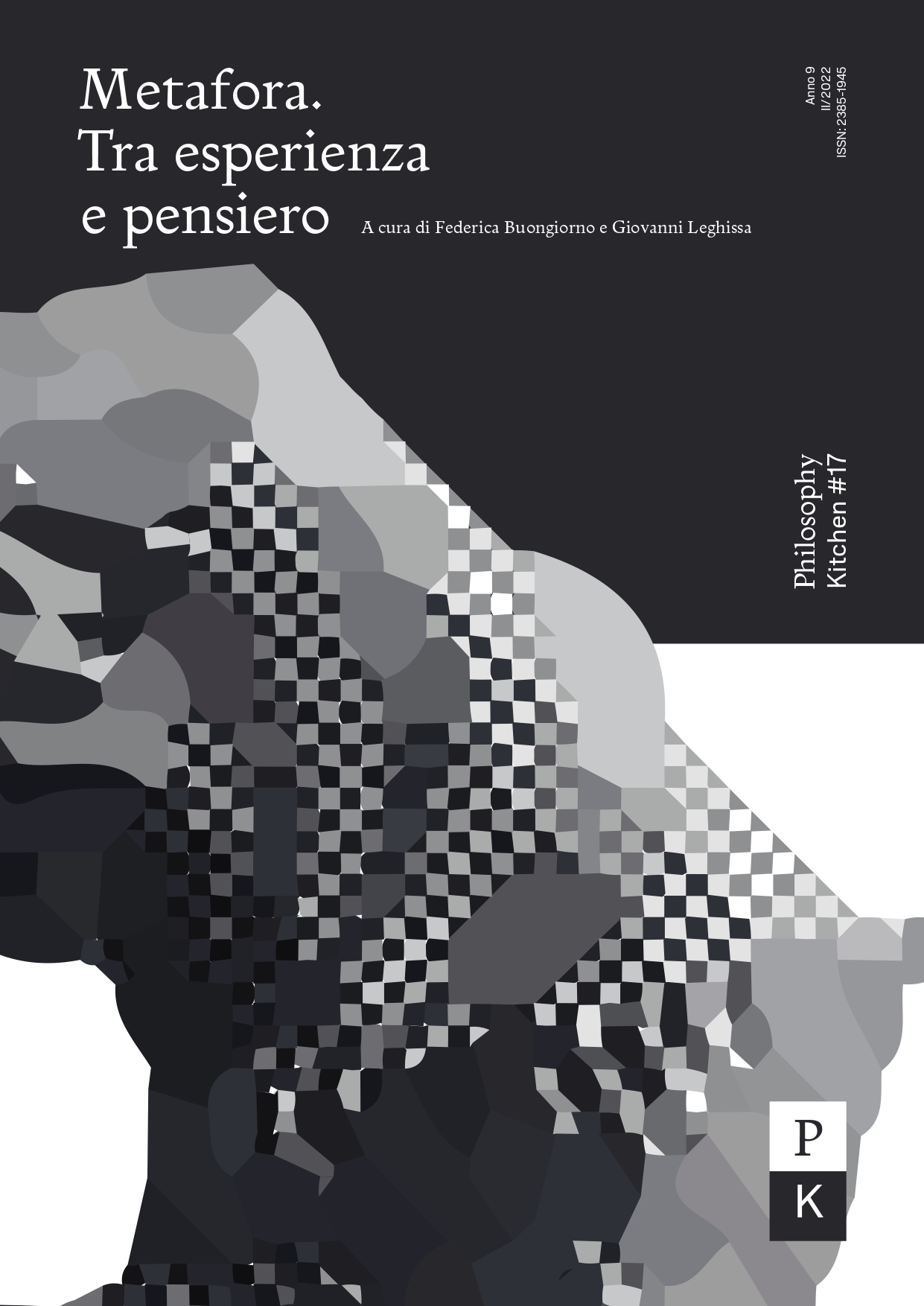Gain and Loss in the Modern Economy of Metaphors
DOI:
https://doi.org/10.13135/2385-1945/7183Abstract
All theoretical models dealing with metaphor have in common the idea that this figure must be understood in terms of gain and loss, within the framework of a semantic economy of the figure, whether it be considered on the local - rhetorical - level of the discourse, as inherited from the Aristotelian tradition, on the level of the whole work, as with the symbolic paradigm fixed by German idealism, or on the level of language, as with the theoretical perspective of the semioticians or Derrida; on the level of our conditions of representation, as in post-Kantian approaches (Blumenberg), or on the level of communication in the framework of a pragmatics of language (Sperber and Wilson, for example). The question of loss and gain implies the question of the cognitive status of metaphor and, therefore, this of the metaphysical principles from which derives the type of figurability by which the metaphor is produced - whether these principles are explicit or not. Since the crisis of criticism, to the fullness of gain, as assumed by ontotheological models (Heidegger), is opposed the idea that the field of metaphor is characterised by loss, whose various models of the 19th and 20th centuries elaborate in different ways the fruitful turnaround.






